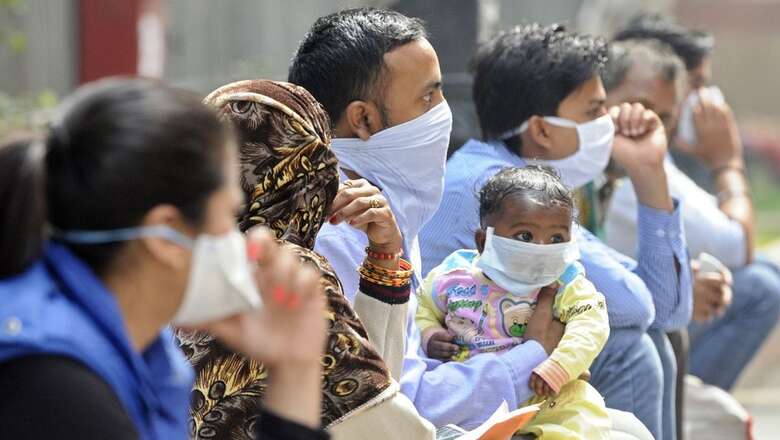
views
As temperatures dip, Delhi-NCR hospitals are noticing a surge in cases of flu, especially H1N1 infection, among elderly and co-morbid people.
Medical experts treating the patients told News18 that elderly patients may face prolonged recovery from infections, which are heightened in the cold season, leading to complications.
The H1N1 flu, sometimes called swine flu, is a type of Influenza A virus.
Severe cases require hospitalisation and while adults recover in 3-4 days, the elderly may take a week or more. Doctors blame the intricate interplay of flu and bacterial infections on extending recovery times, leading to prolonged hospital stays.
Common symptoms of H1N1 flu include fever, muscle pain, cough, sore throat, runny nose, and watery eyes. Despite similar flu symptoms, Covid-19 tests are conducted for inpatients in the majority of hospitals across Delhi-NCR.
Experts notice surge in H1N1
Dr Manisha Arora, unit head of internal medicine at Delhi-based Sri Balaji Action Medical Institute, told News18 that the outpatient department is handling around 12-15 flu cases daily, with one-third requiring admission due to confirmed H1N1 infection.
“The focus is on treating confirmed positive cases, with seniors — often with comorbidities — experiencing super-added infections requiring oxygen support.”
Arora said adults recover relatively swiftly but underlying health issues prolong healing for the elderly, exacerbated by super-added infections during the cold season, leading to increased hypertension and chest infections.
Dr Manoj Sharma, senior consultant, internal medicine at Vasant Kunj’s Fortis Hospital, also confirmed the resurgence of H1N1 cases.
“Every season change or extreme weather brings some viral or bacterial infection with rising alarm. Yes, we are seeing H1N1 patients in OPD but they can be easily managed in OPD as of now,” Sharma said.
Similarly, according to Dr Sakshi Singh, consultant, department of internal medicine at Faridabad-based Amrita Hospital Faridabad, among viral infections, there has been a resurgence in the number of H1N1 and H3N2 and common influenza.
“In cold weather, similar health issues arise. But viral illnesses affecting different health systems have risen in incidences. Along with the rise in pollution and bad air quality, they have been contributing to health risks.”
High BP, heart issues, gastric problems & more
While H1N1 has been highlighted by experts due to sudden resurgence along with complications among elderly patients, other complications reported by patients include influenza, common cold, norovirus infections, hypothermia and frostbite, seasonal affective disorder (type of depression), asthma, respiratory conditions, heart-related issues and joint pain.
Singh from Amrita Hospitals blamed the weather and dipping mercury.
“As the weather gets colder and there is an increase in chilly winds, there are certain health issues that have risen.”
She said issues such as cold, cough, upper respiratory infections, exacerbation in respiratory patients, new virus illnesses in children, elderly and immuno-compromised patients have increased in numbers.
“Flaring up of joints issues and certain viral disorders and gastric infections are also on the rise. Also, an increase is noted in hypertensive and cardiac conditions and stroke cases.”
Sharma from Fortis also clarified that illnesses such as asthma and respiratory conditions, heart-related issues, and joint pain are associated with cold weather and cases go up as mercury dips, usually every season.


















Comments
0 comment